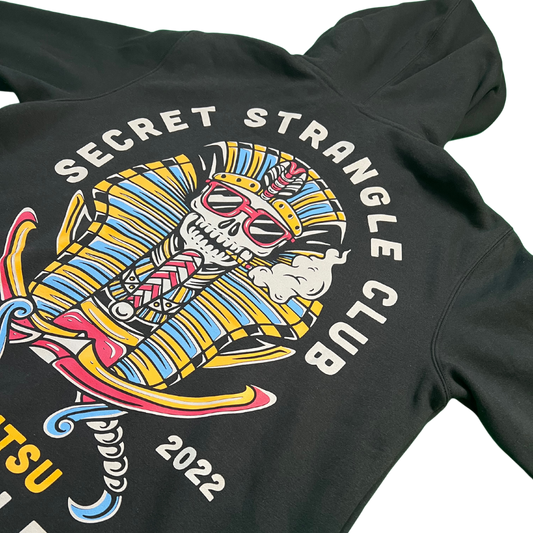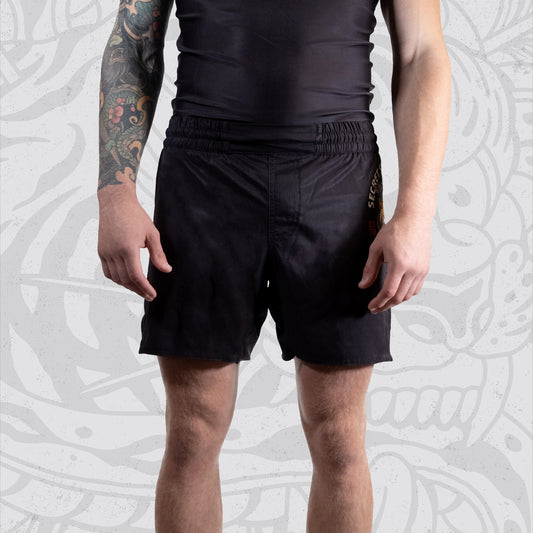The Most Important Life Lesson From Each Belt in BJJ
Training Jiu-Jitsu is a long journey.
If you train smart and stay healthy, you can stay on the mat well into your 70s.
In 2022, I got my black belt in BJJ after almost exactly 8 years of training. During this time, I became an internationally ranked competitor in no-gi grappling, a no-gi world champion at purple belt, and I trained and taught all over the world.
I think I learned a lot about life in that time.
The person I was on my first day of Jiu-Jitsu (at 17) and the person I was on the day I got my black belt (at 24) would likely not recognise each other.
Here are the most important life lessons from each belt in my Jiu-Jitsu journey.
White Belt – How unimportant you are.
White belt is all about checking your ego.
When you start BJJ, you are likely going to be very bad. You are likely going to get tapped out a lot. When this happens, you must learn how to deal with constantly having your ego checked.
The unsettling fact is that if you quit BJJ at white belt, most people won’t notice you being gone.
Accepting your own unimportance is a crucial lesson in building a healthy relationship with your ego. This will help you be more humble, a better team member, and in the long run, a better grappler.
Blue Belt – The value of working hard.
Blue belt gave me a taste of being competent at something.
By the end of blue belt, I was one of the best blue belts in the world. I reached the podium at No-Gi Worlds twice and Pans in the gi once. I won many IBJJF events and cash tournaments in varying rulesets.
This competence was fun, but it was life-changing for my confidence as a young man.
I still didn’t have enough competence to make a living doing BJJ, but blue belt taught me the value of working hard.
I worked hard and I saw results.
This encouraged me to keep going despite injuries, having no money, being in school, and working part-time jobs on the side – thank God I don’t have to do DoorDash anymore!
Purple Belt – The journey is far longer than you think it is.
When I got my purple belt, I got a little cocky.
I started to think I was “good” (by purple belt, you probably are pretty good) because I had an understanding of “fancy” moves, I won some tournaments, and I was starting to teach privates.
For a moment, this inflated my ego.
Then, the novelty of these new experiences wore off, and I realised that I was still a purple belt. I was still very incompetent when compared to black belts and professional-level competitors.
I still had a long way to go.
Brown Belt – “If you have a dream, you have to protect it.”
I think brown belt was the most testing belt for me.
This was around the time when I had to figure out how to really make a living with BJJ and decide whether I was going to really try to be a professional competitor or just a “really good competitive hobbyist”.
This was also around the time I started writing on the internet, a habit that would slowly change my life over the next few years.
Brown belt made me feel like I was in a movie – but the hard part of the movie.
That reminds me of that quote from movie The Pursuit of Happyness, when Will Smith’s character is talking to his son:
“You got a dream... You gotta protect it. People can't do somethin' themselves, they wanna tell you you can't do it.”
It’s maybe a little corny, but it’s still true.
Black belt – The end is not where you think it is.
I always tell people that I “celebrated” my black belt by going to Chipotle, getting a giant burrito (with guacamole, of course), and then going home and going to sleep at 11pm.
It was a normal day.
The day after earning my black belt, I just went back to the gym for a morning drill session, and then I taught class at night and rolled afterward.
It was a great, very exciting day, but it was not the “end” of my journey. It wasn’t a new beginning either.
It was just a nice day.
It was a week out of the ADCC European Trials, so instead of celebrating, I was just focusing on training.
People think black belt is this achievement that is going to change your life, but when you get there you will realise that a new belt, like most achievements in life, doesn’t change you as much as you think.
If you’re unhappy without a black belt, you won’t be happy with one.
You might have some more back pain when you get your black belt, people might randomly start calling you “professor”, and you might get some more teaching opportunities in BJJ, but getting a black belt won’t complete you.
It won’t give you anything you can’t give yourself.
Conclusion
BJJ offers a lot of life lessons that can help people of all ages.
It can help a bullied kid find inner strength and it can help a lonely middle-aged man find their tribe. Each belt offers different lessons for different people.
These were the lessons that most impacted me.
@TheGrapplersDiary
What are some lessons you've learned during your journey? Tell us below 👊



